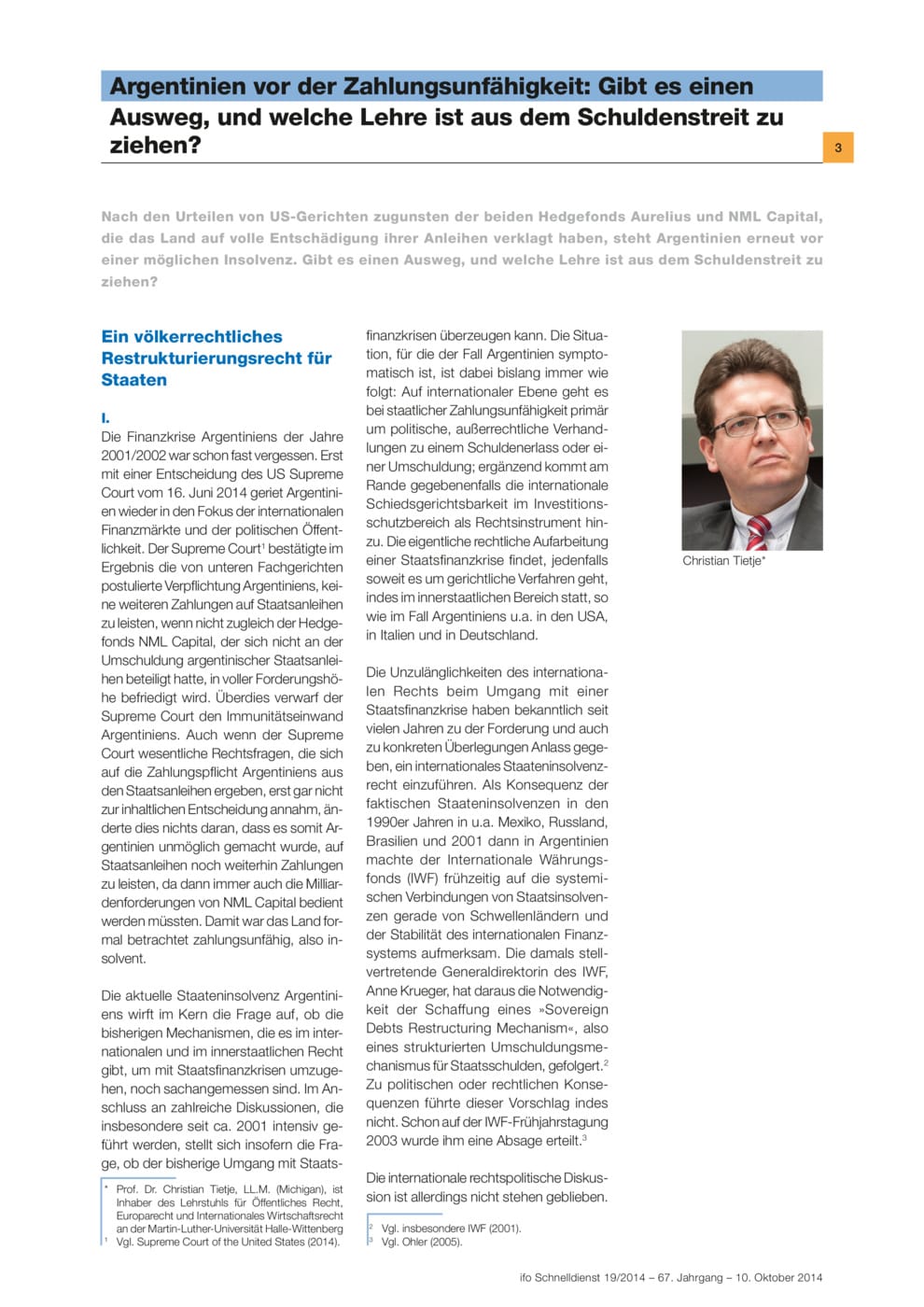Argentina Faces Insolvency: Is There a Way Out and What Lessons Can Be Learnt from the Debt Dispute?
ifo Institut, München, 2014
ifo Schnelldienst, 2014, 67, Nr. 19, 03-15

After the judgments passed by the US courts in favour of the two hedge funds Aurelius and NML Capital, which filed suits against Argentina for full repayment of defaulted bonds, the country is once again facing potential insolvency. For Christian Tietje, Martin-Luther-University Halle-Wittenberg, the fundamental principles of insolvency law apply: a balance is to be struck between satisfying the creditors as fairly as possible, but oriented towards a prioritizing approach on the one hand; and the goal of stabilising the insolvent debtor’s performance as far as possible. In the case of Argentina, the concrete question arises of whether the conscious strategy pursued by some large investors, namely hedge funds, in the environment of both restructurings undertaken by Argentina in 2005 and 2010, namely to purchase government bonds without participation in the debt restructurings and to later demand full repayment on the government bonds, is compatible with the principles of legal restructuring law in the case of a state insolvency. There are good reasons why Argentina could indeed confront these creditors with the argument that their behaviour was in breach of trust. Hanno Beck, Hochschule Pforzheim, sees Argentina as under obligation to its creditors. The state must fulfil its duties. An internationally recognised and accepted insolvency law for states would be an important step in this direction. In the opinion of Michael Bloss, Europäisches Institut für Financial Engineering und Derivateforschung (EIFD) and Hochschule für Wirtschaft und Umwelt, Nürtingen-Geislingen, Argentina’s insolvency is the result of inconsistent insolvency administration. Only an orderly state insolvency would be an instrument for reaching an agreement with creditors in the long-term and helping Argentina to become competitive once again. It would seem long overdue for such a procedure to be conducted by a neutral arbitration body, since countries in financial difficulties, and in this case Argentina in particular, can no longer grow out of their debts on their own.